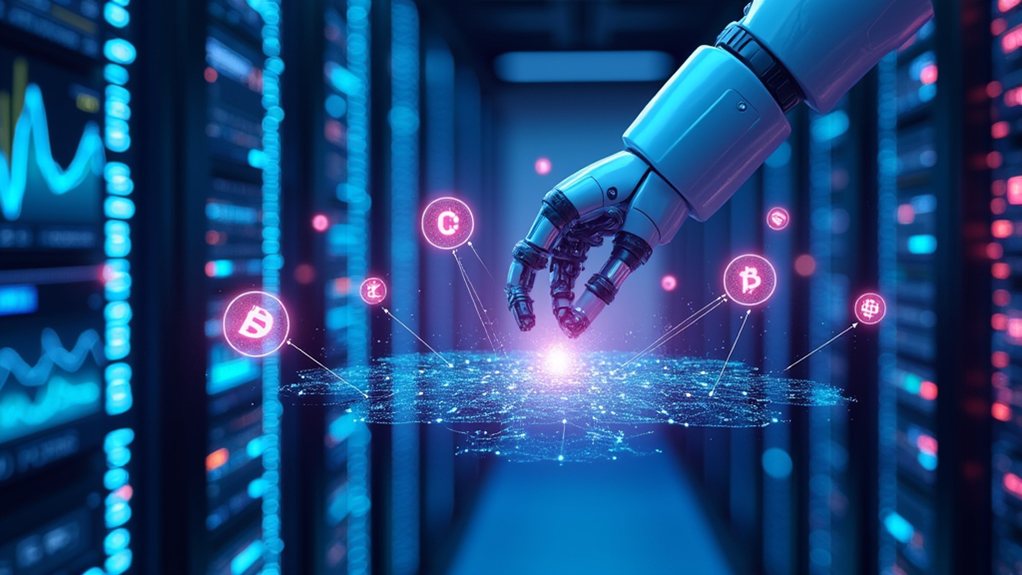As the worlds of artificial intelligence and cryptocurrency continue to converge at unprecedented rates, a technological transformation is reshaping the financial landscape with far-reaching implications. Market projections underscore this convergence, with AI markets expected to reach $13 trillion by 2030 while the cryptocurrency sector approaches $1.9 billion by 2028, creating a nexus of opportunity for innovators who recognize the synergistic potential of these technologies.
The integration of AI into blockchain infrastructure addresses fundamental limitations that have historically hindered mass adoption, particularly by optimizing efficiency and removing computational bottlenecks that impact scalability. Machine learning algorithms analyze transaction patterns across distributed ledgers, identifying anomalies that might indicate security breaches or fraudulent activities, thereby improving the trustworthiness of decentralized systems. The blockchain AI market is projected to grow from $220.5 million in 2020 to $973.6 million by 2027, reflecting the increasing integration of these technologies.
AI supercharges blockchain by eliminating computational barriers and enhancing security through intelligent pattern recognition across distributed networks.
These security improvements represent a critical advancement, as they directly counter prevailing public concerns regarding cryptocurrency vulnerability. AI-driven systems deliver 24/7 monitoring capabilities that ensure immediate response to market opportunities without human intervention. Smart contracts embedded with AI capabilities are transforming the crypto landscape by enabling the automated business processes that significantly enhance efficiency and reduce the need for intermediaries.
Trading and investment strategies have evolved dramatically through AI implementation, with predictive models processing vast historical datasets to forecast price movements with increasing accuracy. Institutional investors utilize these tools to execute complex trading strategies that would be impossible for human analysts to implement manually, creating more liquid and efficient markets that better reflect underlying asset values.
Projects like Fetch.ai and SingularityNET demonstrate the practical application of decentralized AI, creating frameworks where autonomous agents can execute smart contracts and facilitate transactions without human intervention. Such innovations extend beyond simple currency exchange, enabling decentralized marketplaces where algorithms themselves become commodities, creating new economic paradigms.
Despite these advancements, significant challenges remain—particularly regarding data quality, regulatory uncertainty, and market volatility that can confound even sophisticated AI systems.
The future accessibility of cryptocurrency hinges on AI’s ability to simplify complex concepts through intuitive interfaces, automated compliance mechanisms, and personalized risk assessment tools. Organizations that fail to incorporate these AI-driven improvements risk obsolescence in an ecosystem where technological adaptation increasingly determines market survival.





